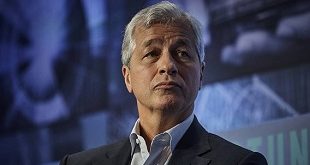
By Peter Otika
Uganda and Chile may seem thousands of miles apart; different in cultures and climate, but they share something in common ‘” a history of brutal dictatorship.
Since the return to Uganda of Dr Olara Otunnu, the former Ugandan foreign minster and United Nations Under-Secretary for Children, the debate over genocide and human rights abuses by the Ugandan army in the war-ravaged northern region has been renewed.
Otunnu has for long claimed that Ugandan army of President Yoweri Museveni has since 1986 been committing a slow genocide on the people of northern Uganda ‘” particularly, the Acholi people. Otunnu’s revelation brings us to one question; can President Museveni be tried for committing genocide or presiding over atrocities committed by his soldiers in northern Uganda?
A Chilean judge Tuesday September 2, 2009, ordered the arrest of 129 former security operatives of former Chilean dictator Gen. Augusto Pinochet. Judge Victor Montiglio said the 129 former officers worked for various security agencies including the army, air force, secret services and the uniform police known as the Dina.
Like his African counterparts, Pinochet ruled Chile from 1973-90 and waged a ‘dirty war’ that callously targeted and eliminated members of Chilean Communist Party and opposition members during Operation Condor, the Colombo Operation and the Street Conference to eliminate his Communist opponents.
It is estimated that dictator Pinochet butchered 3,197 members of the Communist opposition and thousands of innocent civilians before he left power in 1990. Many of his victims simply ‘vanished’ as they were kidnapped and killed, then buried in unmarked graves leaving relatives to wonder.
Human rights organizations tried to prosecute Pinochet for human rights abuses when he was still alive but he managed to evade justice when he died two years ago at age 91 – something reminiscent of Idi Amin Dada who brutally ruled Uganda and evaded justice when died peacefully in Saudi Arabia at 82.
In Uganda, hundreds of thousands people mostly from northern and north-eastern part of the country have been brutally killed allegedly by the Ugandan army originally known as National Resistance Army (NRA) led and founded by General Yoweri Museveni, president of Uganda. The NRA was later renamed Uganda Peoples Defense Forces (UPDF). The other group accused of gross human rights violations in northern Uganda are Lords Resistance Army (LRA), a rebel group led by Joseph Kony.
President Museveni who controls the Ugandan army has been accused of orchestrating a slow genocide in northern Uganda, an allegation he has vigorously denied. In response, he has portrayed and blamed all atrocities in northern Uganda on the LRA.
The point of contention in this allegation however is mostly about the killings done by Museveni’s NRA army from 1986-1988, at a time when the LRA was not in existence or was just beginning. From 1986-1988, Museveni’s army are alleged to have invaded villages in northern Uganda, killed the people, looted their goods and livestock and destroyed their infrastructure.
Ugandans may not agree on whether the killings in northern Uganda qualify for genocide but Otunnu is not the first to bring out this allegation. Members of Parliament from northern Uganda, local people and some outspoken human rights activists around the world have alleged the same.
The United Nations Convention on the Prevention and Punishment of the Crime of Genocide, enacted in 1951, defines genocide as (a) Killing members of the group; (b) Causing serious bodily or mental harm to members of the group; (c) Deliberately inflicting on the group conditions of life calculated to bring about its physical destruction in whole or in part; (d) Imposing measures intended to prevent births within the group; (e) Forcibly transferring children of the group to another group. Whether this partially or fully applies to northern Uganda is a debatable.
When Museveni took over power in 1986, he immediately persecuted anyone who was part of or is alleged to have been part of the previous government of Gen. Tito Okello Lutwa that he overthrew. By 1987, Museveni’s troops had extended this persecution on the locals especially in Acholi through what they called Operation North. Operation North was a scorched-earth policy by the NRA in which they were allegedly ordered to kill anything that walks or live: adults, babies, goats, chicken, banana trees, burn down houses, cut down bridges and even defecate in and poison water wells so that local could not drink it.
In 1987, Museveni soldiers arrested dozens of local men in Mukura in Teso eastern Uganda, loaded them in train wagons and set the wagons on fire burning and suffocating them to death. The soldiers also arrested dozens of Acholi men in Burcoro in Gulu district, ordered them to dig a big pit in which they were smoked to death. All these atrocities were not reported by Western media and human rights organizations.
In 1996, Museveni ordered the internment of three million Acholi people in ‘concentration’ camps that he preferred to call internally displaced people’s camps (IDPs). In these camps, a United Nations official reported in 2004 that 1,000 people died every week, women were raped by Ugandan troops and the security of the people was not guaranteed because the LRA rebels would invade the camps, killing people and abducting children.
The International criminal court, ICC is prosecuting the leaders of the LRA rebels for human rights violations. The same ICC has refused to prosecute Museveni citing that their terms started after the alleged atrocities happened. But can murder not be murder because it took place long time ago?
The fact that Pinochet’s men, Nazi killers, Liberia’s Charles Taylor, Saddam Hussein, Slobodan Milosevic and even the alleged perpetuators of the Rwanda genocide are facing justice today decades later tells us that justice maybe slow, but can be achieved.
The writer is a human rights activist and maybe reached via email at peterotika@hotmail.com
 The Independent Uganda: You get the Truth we Pay the Price
The Independent Uganda: You get the Truth we Pay the Price


